When it comes to work boots there is so much to choose from – and how do you know if what your choosing is the right thing?
Worksite requirements vary from site to site. So this guide will help you decide what will work for you.
I’m going to be explaining the safety boot ratings as well as explaining what all those abbreviations mean.
All footwear must be EN ISO 20345:2011 compliant, and while that looks like a load of mumbo jumbo it makes sense when you break it down.
- EN – Standard code for safety footwear across Europe.
- ISO – This stands for International Organisation for Standardization. This means all products must meet their minimum standards.
- 20345 – This is the footwear legislation number.
- 2011 – Footwear standards were updated in 2011 and became much stricter. All footwear must have toe protection with at least 200 Joule impact protection as standard.

When you purchase new safety boots there will be a list of letters on the box, label or website listing, representing the level of protection offered. Each site has its own rules, if it’s your site, it’s your rules. If it’s not you need to make sure you know what is required of your boots.
Here is what each letter means;
Safety Ratings en iso 20345:2011
SB – Safety basic toe protection
Safety basic only has a protective toecap against a 200 Joule impact. They should only be used in environments where there is no risk underfoot. Sometimes the SB rating will have other letters which offer additional protection such as P which means it offers midsole protection.
SBP – Safety Basic Penetration Resistant
SBP-rated boots have a protective toecap made of steel or composite materials, ensuring protection from impact and compression. They also feature a closed heel design for stability and protection, along with energy-absorbing properties in the heel region for comfort and reduced strain. Additionally, SBP boots are antistatic, preventing electrostatic discharge, and they offer resistance to fuel oil, reducing the risk of degradation and slips in environments with flammable materials or sensitive electronics.
S1 – Antistatic, oil resistant & energy absorption
As well as the basic protection, S1 offers antistatic protection and is resistant to fuel oil and has energy absorption in the heel. As above they will sometimes have a P but S1P styles should only be used for indoor environments where they are not exposed to rainwater.
S2 – Prevents water penetratioN
Offers the same protection as S1 with the added benefit of preventing water absorption and protection to the upper.
S3 – Midsole penetration resistance
S3 styles are the industry standard and offer the same protection as S2 plus midsole penetration resistance.
S4 – Leak-proof
All of the features as S1, but is made from a rubber upper or entirely moulded polymer, such as a Wellington boot. This means they’re waterproof and leak-proof.
S5 – Leak-proof with midsole penetration resistance
As above and also feature midsole protection from sharp objects.
Standards for non-slip footwear
SRA
This is the rating for work boots that should be worn where there is a low chance of slipping
This is tested on ceramic tiles that have been covered in a diluted soap solution.
SRB
If a product passes the SRA test, it can be tested for an SRB rating. Once it has achieved both, it becomes SRC.
Tested on stainless steel with a glycerol covering. (A much more slippery surface than SRA)
SRC
As above, SRC-rated work boots have been tested for both the above conditions and will give the best chance of preventing a slip, fall or trip.
Passes both the above tests.
Most common abbreviations
P – Penetration resistant
C – Conductive
I – Electricity insulating
E – Energy absorption for your heel
A – Anti-static
HI – Heat insulation
CI – Protection against the cold
M – Metatarsal protection
AN – Ankle protection
CR – Cut Resistant
WR – Water resistance
FO – Fuel oil-resistant outsole
WRU – Water penetration absorption upper
HRO – Outside resistance to hot contact
Now you know what all the different codes mean, it’s now time to decide what suits your needs. If you’re working on a site they will have their requirements and if you don’t comply you will likely be refused entry. The site will have carried out extensive risk assessments and will outline what level of protection you need so make sure you find out the correct information before you start.
There are several styles of protective footwear and each offer different features and have different costs. You need to weigh up the pros and cons of each style and decide what works best for you.
Work Boots
Boots have the added advantage of ankle protection which is great if your walking on uneven ground but they can often be heavy unless you opt for an expensive pair. The prices vary immensely as do the styles and colours, but remember this is all about protection. It’s also worth remembering that boots are VAT exempt when purchased by an individual for industrial use.
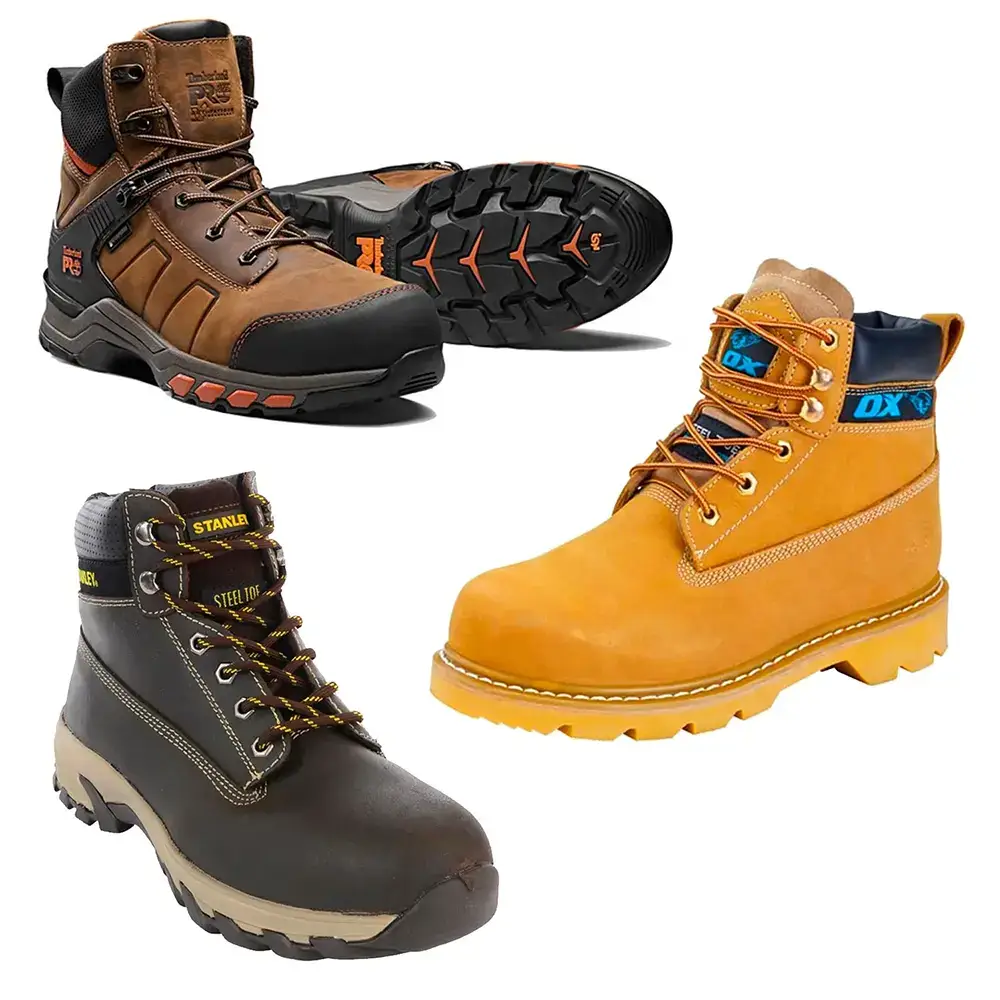
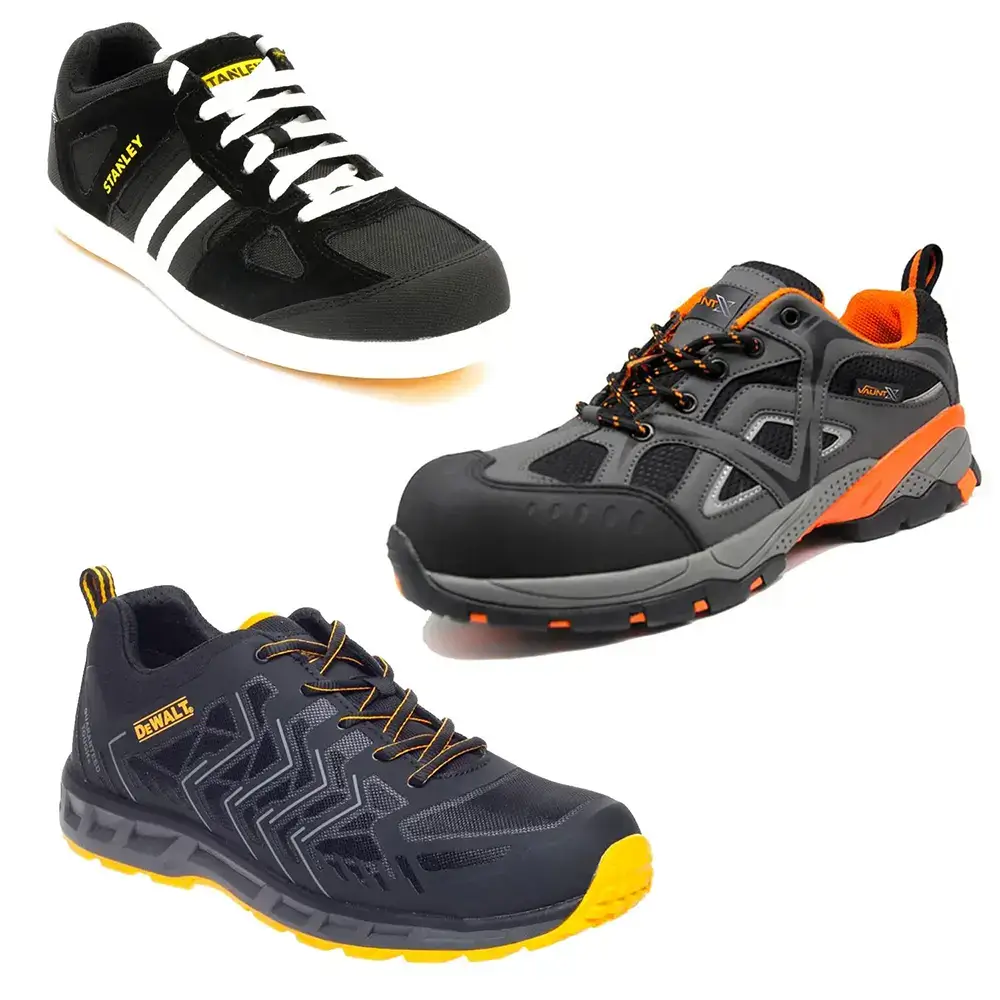
Trainers
Safety trainers are an ideal choice for wearers who do not require the additional protection of a safety boot but prefer footwear that is casual in appearance.
They often feature steel or composite toe caps and midsole penetration resistance.
Wellington Boots
Wellington Boots are an ideal choice where the footwear needs to be washed and disinfected for hygiene reasons.
They still provide ankle support, thermal comfort and a steel or composite toe cap.
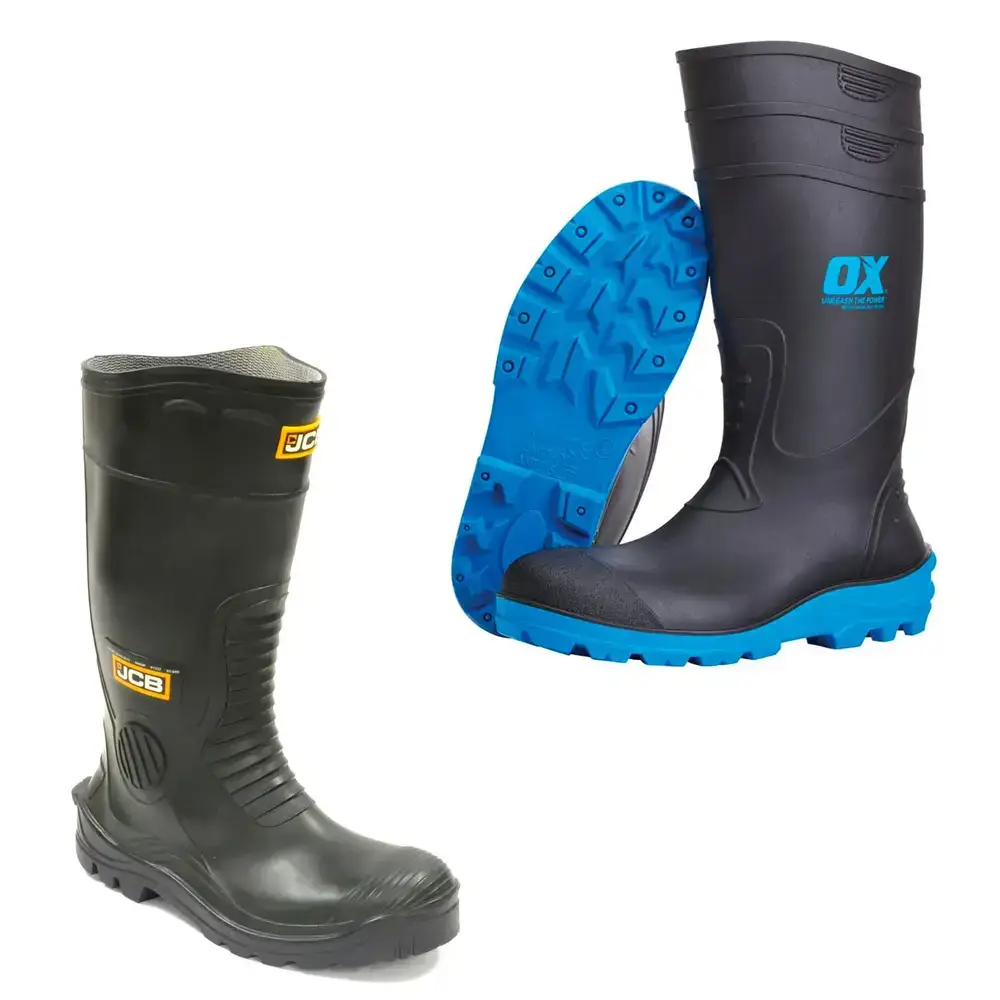
Buying Guide
Know what you need
Think about the environment you are working in and what sort of protection you need. If working on a site check with them what their legal requirements are before purchasing anything
Comfort
Your going to be wearing these for hours at a time so go for comfort over looks. Modern safety footwear is so much better than the old styles and much lighter. It’s also important to get something that fits correctly, if you’re between sizes or have a wide foot it’s generally better to size up for comfort.
Protect your investment
Although footwear can be bought relatively cheaply nowadays, you don’t want to be replacing footwear too often just because they haven’t been looked after. Always unlace your boots when removing them and leave them to air overnight. This prevents a build-up of perspiration and external moisture There is nothing worse than stinky boots especially if you work with other people around!
I hope you’ve found this guide helpful, and remember our staff are always at the end of the phone to offer you all the help you need when purchasing your next pair of safety boots.
Let us know on our socials if there is anything else you would like us to write about.

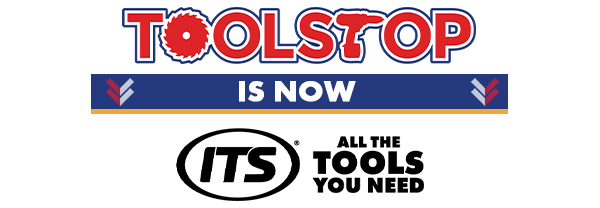

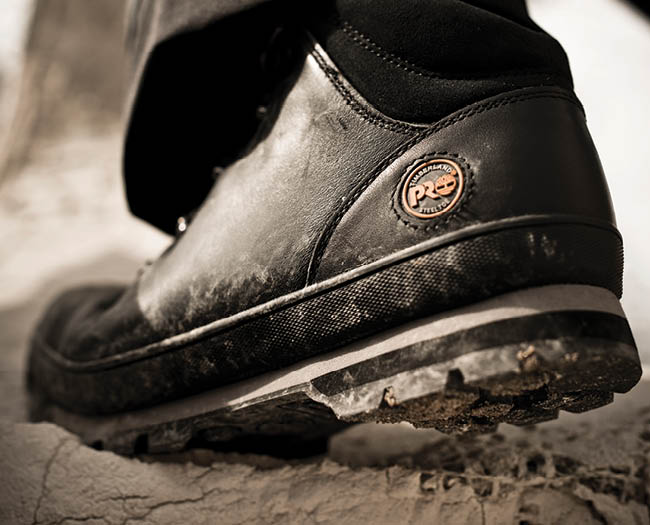
I have recently been advised that some safety boot manufacturers do not stand up to the minimum insulation required to prevent an electric shock, i cant find this information on your Challenger 3 boots which the electricians ware on our site is there a voltage they are insulated to for example up to 1000v a.c or 600v d.c?
Many thanks
Hi, the DeWalt Challenger safety boots are not advertised as electrically insulated – they are S3 WR SRA